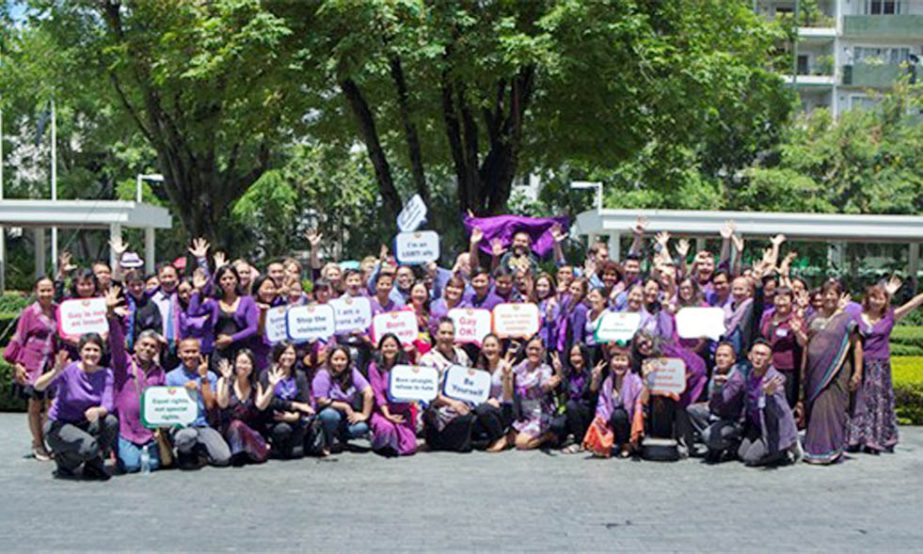
Campus Report :#MyPurpleSchool Campaign against bullying has been launched at the Asia-Pacific Consultation on School Bullying on the Basis of Sexual Orientation and Gender Identity/Expression in Bangkok. The Asia-Pacific countries have committed to taking steps to address homophobic and transphobic bullying in their schools during a three-day regional consultation organized by the United Nations Educational, Scientific and Cultural Organization (UNESCO) and the United Nations Development Programme’s (UNDP) Asia-Pacific regional offices. Delegations from Australia, Cambodia, China, Fiji, India, Indonesia, Myanmar, Nepal, the Philippines, Samoa, Thailand, Tonga and Viet Nam attended the consultation, with several pledging to work towards introducing concrete measures. “We know [that] exclusion, bullying and violence have immediate, long-term and intergenerational effects. This includes school attendance, performance, and completion,” said UNESCO Bangkok Director Gwang-Jo Kim. “Bullying affects the whole climate of the school and community. “Taking steps to make schools safe, respectful and inclusive benefits everyone,” he said.The commitments were made during the Asia-Pacific Consultation on School Bullying on the Basis of Sexual Orientation and Gender Identity/Expression held from 15-17 June in Bangkok, Thailand. More than 100 participants took part in the consultation, including delegations from 13 Asia-Pacific countries, comprising education and other ministry officials, national civil society organisations, academic institutions and UN agencies, as well as regional and global education and development partners.Caitlin Wiesen, Chief, Regional Policy and Programme Support for Asia and the Pacific for UNDP said that the consultation “represents a vital part of the UN’s mission to tackle the discrimination and marginalization of LGBTI people in the Asia-Pacific region”. “UNDP believes that for development to be effective, it must be inclusive. In order to be inclusive we must proactively ensure that all marginalized populations are actively encouraged and supported in achieving the full realization of their rights,” she added.The three-day meeting helped participants determine the scope of bullying and violence on the basis of sexual orientation, gender identity or expression (SOGI/E) in the region, what measures are being taken to address the problem and where gaps lie when it comes to protecting students’ rights to a safe learning environment. The importance of teacher training, awareness-raising interventions in schools, counselling and peer support were among the areas discussed in sessions.Justine Sass, UNESCO’s Regional HIV and AIDS Adviser for Asia and the Pacific, said that teacher training, in particular, was a key area to be addressed.”Teachers usually want to support students, but on this issue often don’t have the knowledge or skills,”she said. “Teachers can also be part of the problem. To be part of the solution, teachers and other staff need to review their values, attitudes and beliefs about sexuality and gender and to understand their roles in creating safe and respectful environments.” Delegates at the consultation committed to pursuing measures to raise awareness around bullying on the basis of SOGI and to introduce safeguards in their educational systems. The Philippines, for example, plans a SOGI sensitization workshop for education ministry officials as well as consultations on how to integrate SOGI in the country’s anti-bullying law. Cambodia, China, Indonesia, Myanmar, Thailand and Viet Nam also committed to consultations aimed at bringing a broader set of stakeholders into the discussion. Opportunities to better protect the rights of all learners were also identified in the policy and legal fields. For example, a pending bill in the Philippines that bans discrimination on the basis of SOGI references discrimination in education, while the Myanmar delegation identified the potential for SOGI to be referenced in the portion of the country’s draft Education Law that deals with exclusion. In Australia, the expansion of the anti-bullying Safe Schools programme into new states brings with it the opportunity to strengthen federal policies in this area as well.

